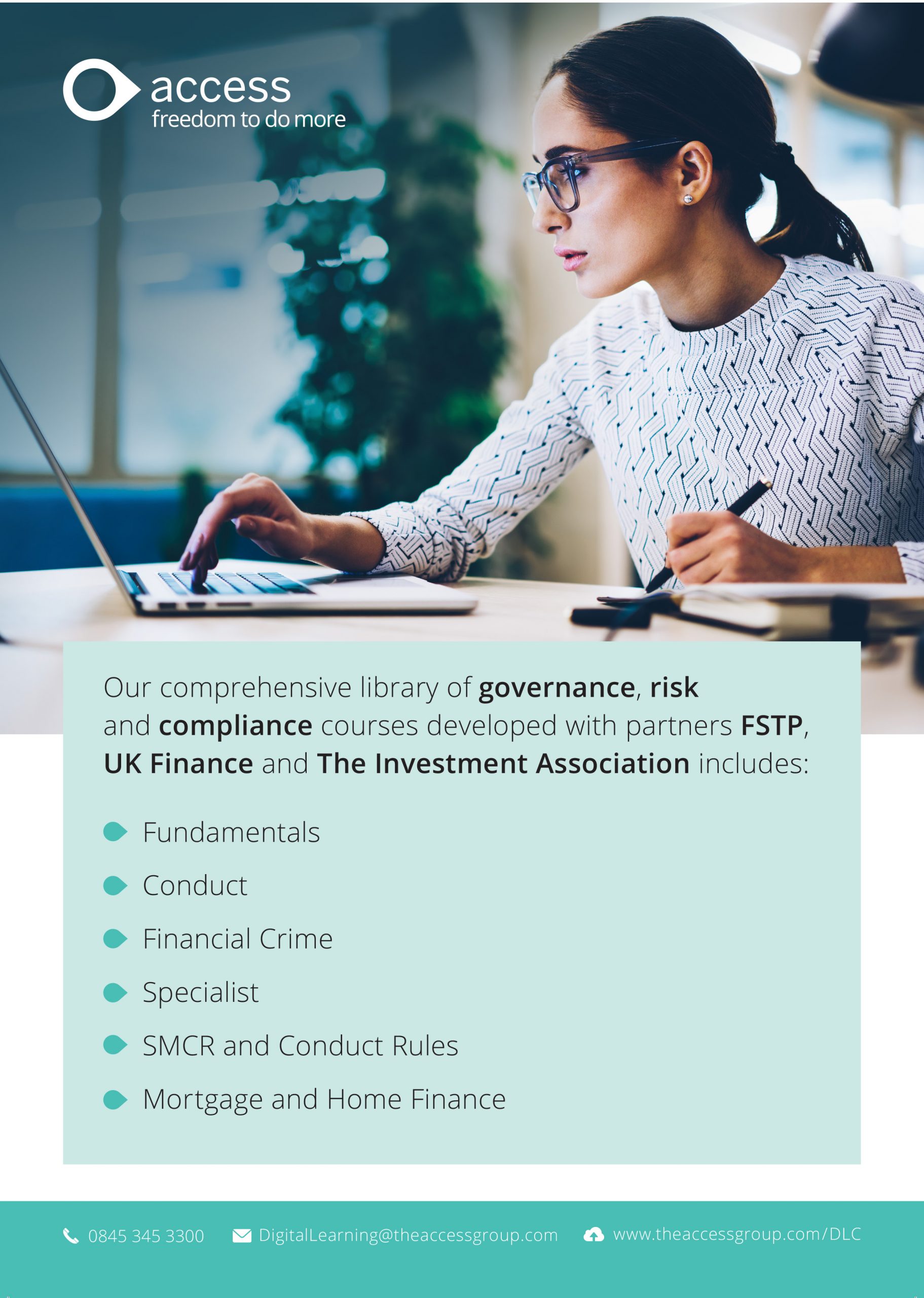Why do we need conduct rules? Should people working in financial services already be acting with integrity? Of course, they should. Obvious, isn’t it? Well, it should be. But unfortunately, it hasn’t always been that way.
This is where the FCA’s Regulatory Framework comes in. Consisting of The Senior Managers Regime, the Certification Regime (SMCR) and the Conduct Rules, the framework promotes individual accountability.
Firms regulated by the FCA and Prudential Regulation Authority (PRA) have operated under SMCR since 2016, but firms regulated by the FCA only (‘solo-regulated firms’) officially came under SMCR on 9 December 2019.
In the twelve months that followed, firms were then required to gather evidence and complete fit and proper assessments on Senior Manager Functions (SMFs) and any Certified individuals. This twelve-month period has now been extended to 31 March 2021 due to Covid 19. However, SMFs and Certified individuals should have been trained on the Conduct Rules prior to the 9th December 2019.
not disclosing a conflict of interest, disclosing the wrong data, leaving a screen unlocked and causing an IT breach… the possibilities are extensive
Meanwhile, the deadline for other members of staff to be trained on the Conduct Rules has also be extended to 31 March 2021.
So, let’s take a look at the rules:
Rule 1: You must act with integrity.
Rule 2: You must act with due skill, care and diligence.
Rule 3: You must be open and cooperative with the FCA, the PRA and other regulators.
Rule 4: You must pay due regard to the interests of customers and treat them fairly.
Rule 5: You must observe proper standards of market conduct
In addition, the FCA also implemented a set of rules specific for those with roles covered by the Senior Manager Regime or Certification Regime. This was solely to enforce accountability at a senior level for all regulated firms. There are four such Conduct Rules:
SC1. You must take reasonable steps to ensure that the business of the firm for which you are responsible is controlled effectively
SC2. You must take reasonable steps to ensure that the business of the firm for which you are responsible complies with the relevant requirements and standards of the regulatory system
SC3. You must take reasonable steps to ensure that any delegation of your responsibilities is to an appropriate person and that you oversee the discharge of the delegated responsibility effectively
SC4. You must disclose appropriately any information of which the FCA or PRA would reasonably expect notice
Those are two substantial lists, aren’t they? And they’re not just ‘another set of lists’. For example, in staff’s everyday lives many things could breach the Individual Conduct Rules – not disclosing a conflict of interest, disclosing the wrong data, leaving a screen unlocked and causing an IT breach… the possibilities are extensive. If such breaches require disciplinary action they then become reportable to the regulator.
These requirements have been made well known, so why are we talking about this again now? Well, since the more stringent Conduct Rules were put in place there have been a number of high-profile instances where these rules clearly weren’t followed, and these resulted in yet more detriment for consumers.
For example, the FCA fined a high-profile life assurance company over £30m for failures related to non-advised sales of annuities that resulted in the unfair treatment of consumers due to focus on financial incentives for staff.
So even though the Conduct Rules have been around for a few years now, there are undoubtedly still some lessons to be learned.
So, what’s the solution? Just follow the rules, right? In principle no-one disagrees with good conduct, after all, we are all consumers, so we all expect our providers to do the right thing by us every time and your consumers are no different. But, getting all your staff to do this at all times and be able to confidently govern the application of the rules is a good deal more in-depth. That’s where the right training becomes an effective and essential part of a firm’s tool-kit in ensuring all your staff know what they have to do and how.
At the Access Group, we work with Philippa Grocott and her team at Financial Services Training Partners (FSTP) and Philippa comments “In the Senior Managers and Certification Regime Banking Stocktake Report, the FCA were keen to highlight that their “evidence suggests that firms have not always sufficiently tailored their Conduct Rules training to staff job roles …….Many firms were often unable to explain what a conduct breach looked like in the context of their business”. Our experience at FSTP echoes this.”
Philippa remarks further that:
“Firms that we trained on the Conduct Rules using the Access solutions had role-specific case studies, so it was easy to evidence that the firm had taken “reasonable steps to secure that those persons understood how those rules apply in relation to them.” Banks that took the high-level generic approach previously are now working with us to deliver the correct approach.”
What can you do now?
Training for staff and managers: As mentioned, this is critical to the success of conduct change and ongoing effectiveness. Where you may have previously considered face-to-face learning for that, what about now?
Face to face although very powerful, is time-consuming, may be expensive and may take some time to cover larger numbers of staff, and given the pandemic is near on impossible to do unless virtually. Research suggests that face-to-face learning can also have quite a high ‘forget’ rate when compared to engaging eLearning say. Alongside a lower ‘forget’ rate, the advantages of engaging eLearning also include being cost-effective and being able to train unlimited numbers of staff simultaneously with the same consistent style/approach and message. Take a look at our market-leading GRC eLearning courses for firms Financial Services.
Improving culture and conduct: A clearer understanding of the expectations from the top, along with the right attitude and approach to conduct, needs to be part of your firm’s lifeblood, in its DNA.
A combination of culture and training: Re-enforcement and consistency of the right messages, coupled with a demonstration from the top-down, incorporating SM&CR, will lead to change. If you couple this with training that repeats that message; the only way is forward for your firm.





